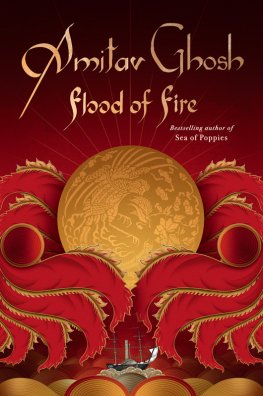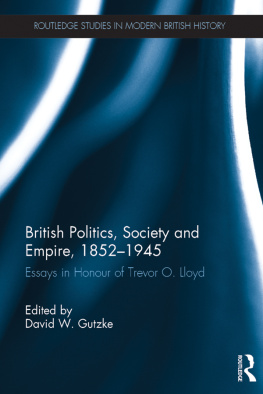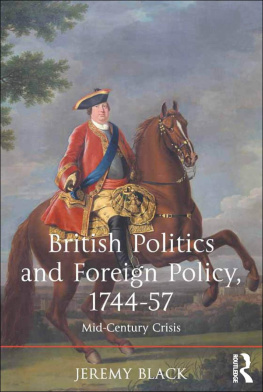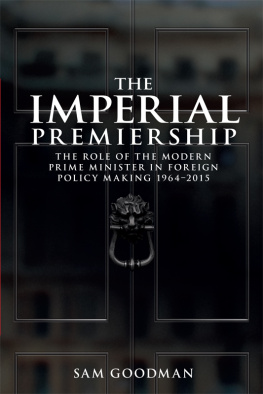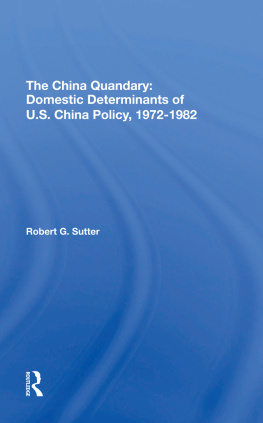BRITAIN'S CHINA POLICY AND THE OPIUM CRISIS
In memory of Yves Paul Melancon Jr (1936-2000)
Britain's China Policy and the Opium Crisis
Balancing Drugs, Violence and National Honour, 1833-1840
Glenn Melancon
Southeastern Oklahoma State University, USA
First published 2003 by Ashgate Publishing
Published 2017 by Routledge
2 Park Square, Milton Park, Abingdon, Oxon OX14 4RN
711 Third Avenue, New York, NY 10017, USA
Routledge is an imprint of the Taylor & Francis Group, an informa business
Copyright Glenn Melancon 2003
Glenn Melancon has asserted his moral right under the Copyright, Designs and Patents Act, 1988, to be identified as the Author of this Work.
All rights reserved. No part of this book may be reprinted or reproduced or utilised in any form or by any electronic, mechanical, or other means, now known or hereafter invented, including photocopying and recording, or in any information storage or retrieval system, without permission in writing from the publishers.
Notice:
Product or corporate names may be trademarks or registered trademarks, and are used only for identification and explanation without intent to infringe.
British Library Cataloguing in Publication Data
Melancon, Glenn
Britain's China Policy and the Opium Crisis: Balancing Drugs, Violence and National
Honour, 1833-1840.
1. Opium tradeHistory. 2. Great BritainForeign relationsChina. 3. China
Foreign relationsGreat Britain. 4. Great BritainForeign relations19th century.
5. ChinaHistoryOpium War, 1840-1842. I. Title.
327.4'1'051-09034
Library of Congress Cataloging-in-Publication Data
Melancon, Glenn
Britain's China Policy and the Opium Crisis: Balancing Drugs, Violence and National
Honour, 1833-1840 / Glenn Melancon.
p. cm.
Includes bibliographical references (p. ) and index.
1. Great BritainCommerceChinaHistory19th century. 2. ChinaCom
merceGreat BritainHistory19th century. 3. Great BritainCommercial
policyHistory19th century. 4. ChinaCommercial policyHistory19th
century. 5. ChinaHistoryOpium War, 1840-1842. 6. Great BritainForeign
relationsChina. 7. ChinaForeign relationsGreat Britain. 8. Great Britain
Politics and government19th century. 9. ChinaPolitics and government19th
century. 10. Great BritainEconomic conditions19th century. 11. Great Britain
Social conditions19th century. I. Title.
HF3508.C5M45 2002
382'.0941051'09034dc21
200228118
ISBN 13: 978-0-7546-0704-5 (hbk)
I wish to thank the numerous individuals and institutions who have assisted me along this long journey. I begin with the archives that have always allowed me to access and use their collections: the Broadlands Trust, ING (Baring Brothers) and Jardine Matheson. I extend special thanks to Lord Napier and Ettrick for allowing me to use his ancestor's private papers.
I also wish to thank those institutions that provided me with financial support: the Harry Frank Guggenheim Foundation, the Oklahoma Foundation for the Humanities and Southeastern Oklahoma State University. I could not have completed my research without their aid.
Since no book is completed in a single stage, I owe a debt of gratitude to the mentors that have helped me refine my thoughts over the years: Amos Simpson and Vaughan Baker of the University of Louisiana, Meredith Veldman and John Henderson of Louisiana State University and Edward Ingram of the International History Review. Earlier portions of my argument appeared as 'Peaceful Intentions: The First British Trade Commission in China, 1833-1835', Historical Research: The Bulletin of the Institute of Historical Research , February 2000 and 'Opium and Honour: The British Cabinet's Decision to Wage War on China, 1839-1840', International History Review, vol. 21.3 (December 1999).
I thank God for the care and encouragement of my family. My parents, Yves 'Buster' and Anna Mae Melancon, provide me with a strong foundation upon which to build my life. My sons, Christopher and Alexandre, have brought me much joy during my labour. Finally, I can never say, or do, enough to thank my wife Jackie. She has never once wavered in her support for me. I dearly love them all.
The first Opium War (1840-1842) was a defining moment in Anglo-Chinese relations, and since the 1840s the histories of its origins have been straightforward narratives. Generally, they argue that in the early nineteenth century northern merchants and industrialists, the new dynamic players in the British economy, forced Parliament to abolish the East India Company's monopoly of the China trade. After the abolition act took effect in 1834, the newly created British Trade Commission actively pressed for a formal commercial treaty and even sought an excuse to wage war to force the Chinese into submission. British officials, merchants and industrialists wanted to break down the Chinese government's restrictions on trade, known as the Canton system, thus opening China's market to goods produced by Britain's expanding industrial economy. Simultaneously, British merchants in the Far East increased their illegal sale of Indian-grown opium in China. Opium sales generated revenue for the British-run government in Bengal and paid for Chinese tea, a highly prized commodity in Great Britain. The Chinese government, however, tried to stop the importation of the illicit drug, finally seizing 2 million worth of British- owned opium in 1839. The Chinese government had played straight into Great Britain's hands. The British cabinet turned to its military to protect opium sales and to force open the China trade.
Underlying these arguments is the assumption that the primary motivation driving both British mercantile and governmental interests was economic in nature. As Peter Fay explained in his analysis of the decision to wage war, 'What finally dominated the discussion, however, was not the war-or-peace aspect of the China question, but the pounds, shillings, and pence of it.' Although they ultimately won the support of Lord Melbourne's Whig ministry (1835-1842), that support was not a foregone conclusion, and there is little evidence for such bold assertions.
The belief that the British government went to war to defend and expand trade became widespread because it fitted neatly into the earlier twentieth-century historians' understanding of British society. Until recently the established interpretations in British history argued that in the late eighteenth and early nineteenth centuries the British witnessed the final decay of traditional society and the emergence of a modern nation. As industry and commerce replaced agriculture as the most significant aspect of the economy, the rural, aristocratic community of the ancien regime gave way to the urban, middle-class society of the Victorian period. Following the political and economic policies and values of the middle class, British imperial power reached its apogee. During the mid-1970s, however, a new explanation of nineteenth-century British social structure began to emerge which challenged this standard interpretation. Denying the centrality of modernization to the experience of life in the first half of the nineteenth century, these historians view Britain in the 1830s as a predominantly traditional society. The landed aristocracy remained the dominant order economically, socially and politically. Although northern industrialists began their challenge to Britain's aristocratic order in this period, the limited scope of industrial growth inhibited their ability to win approval for middle-class initiatives at the highest levels of government.


